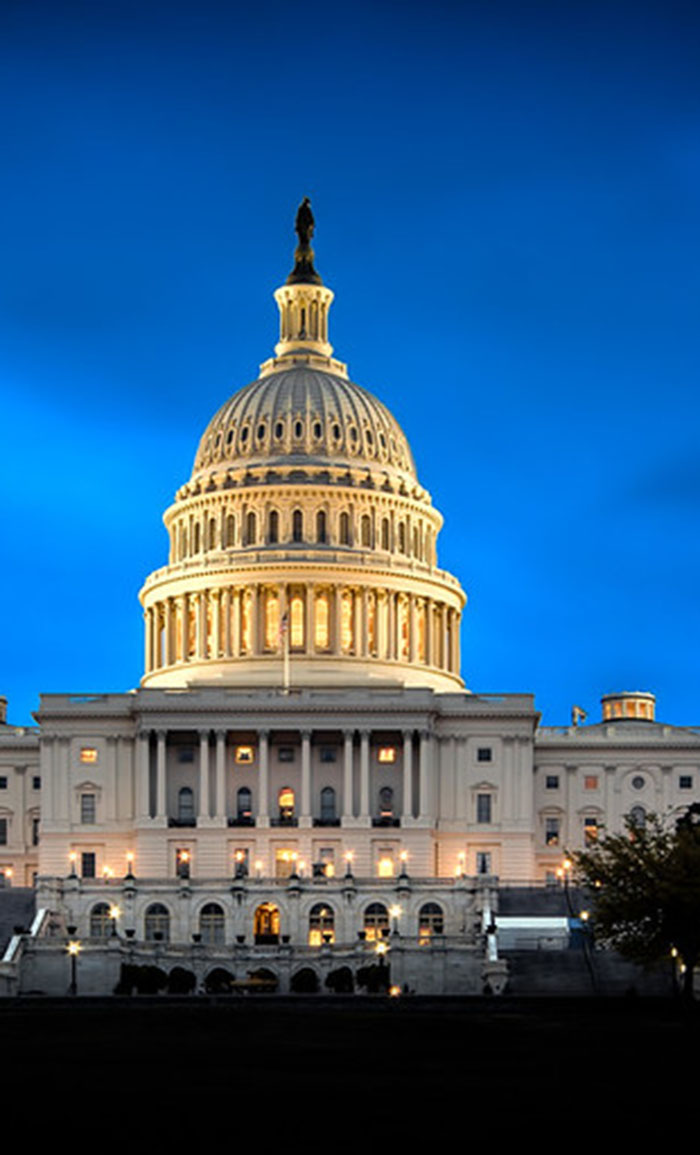
28 March 2025 • 35 minute read
Horizon – News and Trends in Sustainability Law

In this issue
Click each topic to jump to that section.
Trump Administration actions
SEC withdraws defense of US climate disclosure rules; Uyeda speaks on ESG and materiality. On March 27, 2025, the Securities and Exchange Commission (SEC) notified the US Court of Appeals for the Eighth Circuit that the SEC wishes to withdraw its defense of its landmark Climate Disclosure Rules (Climate Rules) in Iowa v. SEC, the case challenging the validity of the Climate Rules. SEC lawyers are “no longer authorized to advance” the case, thereby terminating mandatory climate-related disclosures for US public companies for the foreseeable future. Notwithstanding this decision, acting SEC Chair Mark Uyeda stated during a Wall Street Journal summit on March 6 that climate and other ESG-related disclosures will remain necessary for some companies if such information is “material” to shareholders. Uyeda noted that, for years, federal securities laws have required disclosure of climate and other ESG-related matters under the materiality standard, which as articulated by case law, is viewed from the lens of whether a reasonable investor would consider the information important when deciding to buy, sell, or vote a company’s securities. The SEC’s 2010 guidance on climate-related disclosures provides a roadmap for companies assessing climate-related risks and disclosures. For more information about the implication of these developments, please follow our Market Edge blog.
EPA aiming to dismantle most major climate regulations and reduce staff by 65 percent. On March 12, EPA Administrator Lee Zeldin announced that the Trump Administration intends to roll back most of the EPA’s major climate regulations. The announcements came in a rapid flood during the morning – 31 were issued via individual press releases in about two hours. This considerable rollback in the EPA’s regulatory reach will bring major changes to the agency; on March 6, President Donald Trump announced that his Administration is aiming to cut around 65 percent of the EPA’s staff.
Among the regulations on the chopping block:
- The definition of “waters of the US” (WOTUS) – the rivers, wetlands, and streams that receive protection under the Clean Water Act
- tailpipe emission standards for cars and trucks
- CO2 limits for coal- and natural gas-fired power plants
- methane leak limits on the oil and gas sector
- a GHG reporting program for major industries
- The so-called good neighbor rule, which regulates downwind air pollution.
Most significantly, the EPA announced it would formally “reconsider” the 2009 endangerment finding, which holds that GHG emissions are pollutants that endanger the public’s health and welfare. The finding laid the groundwork for GHG regulation under the Clean Air Act and is regarded as the backbone of US climate policy: unwinding it would also unwind the justification for regulating climate pollution across the US economy. At this writing, it is unclear how the EPA would seek to unwind the finding. Reportedly, Zeldin has recommended a formal rulemaking, a process that would in part entail convening a scientific advisory board to replace the boards EPA dismantled in February. The sweeping action was not unexpected. On March 11, Energy Secretary Chris Wright stated, “The Trump administration will end the Biden administration’s irrational, quasi-religious policies on climate change that imposed endless sacrifices on our citizens” and described climate change as “a side effect of building the modern world.” On March 12, writing about the coming announcements in the Wall Street Journal, Zeldin said, “Today is the most consequential day of deregulation in American history… We are driving a dagger through the heart of climate-change religion and ushering in America’s Golden Age.”
On March 20, the US District Court for the District of Columbia temporarily blocked the EPA’s attempt to claw back $14 billion in Greenhouse Gas Reduction Fund grants, stating that the agency “gave no legal justification for the termination” of the contracts with three nonprofits. The order does not restore the nonprofits’ access to the funds, pending ongoing litigation, nor does it end the agency’s right to terminate such contracts in future.
GAO says Congress does not have the authority to revoke California Clean Air Act waivers. On March 6, the Government Accountability Office (GAO) issued a legal opinion on Zeldin’s call to Congress to revoke three of California’s Biden-era Clean Air Act waivers. Congress may strike down an official federal rule that an agency has issued within 60 legislative days of the rule’s finalization. However, the California CAA waivers have historically been treated not as rules but as administrative adjudications, separate from the rulemaking process. Senators Alex Padilla (D-CA), Adam Schiff (D-CA), and Sheldon Whitehouse (D-RI) asked the GAO for its legal analysis of the nature of the CAA waivers. Citing its decisions on the same issue in 2023, the GAO stated that “our 2023 Clean Air Act preemption waiver decision would also apply” in this instance – the waivers are not subject to the Congressional Review Act and that Congress therefore does not have the authority to strike them down. See the GAO’s letter summing up its analysis here.
US withdraws from two more climate initiatives. The Trump Administration has pulled the US from two more key global climate initiatives. These moves come on the heels of President Donald Trump’s withdrawal of the US from the Paris Agreement (effective as of January 2026) and his cancellation in February of $4 billion in US pledges to the Green Climate Fund, which helps developing countries adopt clean energy and adapt to climate change.
On March 4, the two US diplomats serving on the board of the UN’s Fund for responding to Loss and Damage formally resigned. The Fund was operationalized in 2023 during COP28, after years of diplomatic and grassroots effort, to provide financial support to developing nations struck by climate-driven disasters. The US had pledged to contribute $17.5 million to the Fund, and its withdrawal may imperil Fund projects that are set to launch this year. Notably, many other entities, among them the European Union, France, Italy, the United Arab Emirates, and the United Kingdom, had already pledged more to the Fund than had the US.
The two diplomats’ resignation came the same day that Edward Heartney, a minister-counselor at the US mission to the UN, stated in a speech before the UN General Assembly that “the United States rejects and denounces the 2030 Agenda for Sustainable Development and the Sustainable Development Goals, and it will no longer reaffirm them as a matter of course.” At this writing, it remains unclear whether the US is simply withdrawing its diplomats from their roles on the Fund’s board or whether it also intends to renege on its monetary pledge.
Next, on March 7, US Treasury Secretary Scott Bessent withdrew the US from the Just Energy Transition Partnership (JETP) initiatives, a global program launched in 2021 during COP26 to help heavily coal dependent countries transition to a low-carbon economy through financing cooperation mechanisms. Bessent also terminated US membership in the International Partners Group (IPG), the coalition of affluent countries that supports JETP initiatives.
Indonesia, Senegal, South Africa, and Vietnam were to be the first beneficiaries of JETP financial guarantees and loans to help them achieve their Nationally Determined Contribution decarbonization goals. Of those programs, only the Senegal initiative, which involved no US pledges, will be unaffected. Germany and Japan have moved to take over leadership of the Indonesian JETP, which had been relying on $20 billion in US pledges.
Interestingly, while this withdrawal, like the other US withdrawals from climate initiatives, is being widely decried, some stakeholders do not view it negatively. The Institute for Energy Economics and Financial Analysis commented that the US exit from JETP “can be viewed as favorable for the energy transition. Given the U.S. administration’s contradictory priorities to drill for oil and gas and enhance liquefied natural gas (LNG) sales overseas, its continued involvement may have led to delays or diversions.” The remaining members of the IPG are Canada, Denmark, the EU, France, Germany, Italy, Japan, Norway, and the UK.
Council on Environmental Quality issues memorandum on NEPA implementation: Top points. Two actions taken by the White House Council on Environmental Quality (CEQ) show how the Trump Administration has begun operationalizing its regulatory strategy for projects requiring evaluation under the National Environmental Policy Act. In this alert, we discuss two key actions being taken and key takeaways for companies.
Hegseth: “Climate change crap.” “The @DeptofDefense does not do climate change crap,” Secretary of Defense Pete Hegseth posted on X on March 9. “We do training and warfighting.” In the wake of his posting, the Pentagon announced it has cancelled numerous studies related to climate issues, among them research seeking to determine whether a hotter planet could lead to instability in Africa. The Department of Defense has also reportedly been reviewing numerous outside contracts for the term “climate” – reports indicate that at least 91 contracts may be cancelled. Pentagon Press Secretary John Ullyot said the DOD is working closely with the Department of Government Efficiency (DOGE) to review programs across the military.
Szabo: Adapt, don’t mitigate. During his confirmation hearing before the Senate Committee on Environment and Public Works on March 6, Aaron Szabo, President Trump’s nominee to lead the EPA’s Air and Radiation office, said that while human-caused climate change is real, rather than trying to reduce or mitigate such changes, “it is important for us to adapt to any change, including those that occur with respect to climate.” Asked by Senator Sheldon Whitehouse (D-RI) whether the US should reduce its reliance on fossil fuels, Szabo stated, “I believe, once again, that we can adapt to the potential impacts to climate change without causing potential issues to our reliance on our natural resources within this country.” He declined to say whether climate change is exacerbated by the use of fossil fuels. The hearing before the Senate Environment and Public Works Committee also scrutinized David Fotouhi, a lawyer in private practice nominated for the EPA deputy administrator role. Szabo is already serving as an adviser to EPA Administrator Lee Zeldin, who, as we note above, announced that the EPA would formally “reconsider” the 2009 endangerment finding. Should Szabo and Fotouhi be confirmed – which at this writing is forecast to happen in the coming days – they are expected to lead efforts to unwind the endangerment finding. On March 13, both their nominations were advanced to the Senate.
NOAA: lease terminations, layoffs. The Trump Administration’s Department of Government Efficiency (DOGE) is moving to cancel the leases of a number of key National Oceanic and Atmospheric Administration (NOAA) facilities. Among them are the NOAA Center for Weather and Climate Prediction in Maryland, the nerve center for US weather forecasting; the National Weather Service's National Centers for Environmental Prediction, which includes the Environmental Modeling Center; the NWS office in Norman, Oklahoma, which monitors extreme weather risks across swathes of Oklahoma and Texas; and the Northeast Fisheries Science Center in Falmouth, Massachusetts, which is relied on by the New England fishing industry. Senior NOAA leaders were informed that DOGE is considering termination of 31 NOAA building leases. During the week of February 24, about 800 NOAA employees were laid off – about 10 percent of that workforce. Among them were five employees who are part of the hurricane hunter flight teams. On March 13, it was announced that three of these employees had been rehired. Across the agency, further cuts of about 1,000 more employees are expected in the near future.
Tree-planting program slashed. The US Forest Service has terminated a $75 million grant to the Arbor Day Foundation to plant and maintain trees, combat extreme heat, and improve access to natural areas through the USDA’s Urban and Community Forestry Program. The termination affects 385 forestry projects that primarily focused on low-income areas in numerous US cities and on Tribal lands. Local media outlets across the country are reporting on the consequences of the termination for their areas – among them, projects that would have helped Tampa reverse the loss of its tree canopy in low-income areas, provided Indianapolis with a more biodiverse tree canopy and improvements to pocket parks, replaced trees destroyed by Hurricane Katrina in New Orleans, and planted fruit-bearing trees and shrubs on Tribal lands in several states.
National Energy Dominance Council to submit report to the President by May 25. The Trump Administration’s newly established National Energy Dominance Council (Council) is expected to submit a report to the President by May 25, 2025 recommending actions intended to expand energy production and lower the cost of energy. The Council, which was established via Executive Order, consists of 19 high-level members of the executive branch, including the Secretaries of State, Treasury, and Defense and the Attorney General, and is chaired by the Secretary of the Interior and Vice Chaired by the Secretary of Energy. The purpose of the Council is to enhance America's energy production and to reduce regulatory barriers, encourage private sector investments, and promote innovation in the energy sector.
Visit our hub. For updates on breaking developments, see our hub, Navigating the presidential transition: Legal and regulatory insights.

Disclosures and voluntary reporting
US proxy disclosure trends from early filers. As of March 26, 2025, DLA Piper reviewed the proxy statements of 212 companies in the Fortune 500 or S&P 500 that filed proxy statements since the beginning of 2025 (the Early Proxy Filers) and compared their ESG (excluding diversity)-related disclosures to those in their 2024 proxy statements. Of those 212 Early Proxy Filers, 151 (approximately 71 percent) provided fewer ESG disclosures in their 2025 proxy statements as compared to their 2024 proxy statements, with 89 of the Early Proxy Filers (approximately 42 percent) providing significantly fewer ESG disclosures in 2025 as compared to 2024. Additionally, 182 of the 212 companies (nearly 86 percent) provided fewer diversity-related disclosures in their proxy statements, with 112 (nearly 53 percent) providing significantly less disclosure. Our alert covers additional trends and reminders for the 2025 proxy season.
Japan adopts IFRS-aligned sustainability disclosure standards. In an important step towards internationally aligned reporting requirements for companies operating in Japan, the Sustainability Standards Board of Japan (SSBJ) has finalized its sustainability disclosure standards. The three standards are generally based on the standards of the IFRS Foundation’s International Sustainability Standards Board. They are the Universal Sustainability Disclosure Standard “Application of the Sustainability Disclosure Standards;” Theme-based Sustainability Disclosure Standard No. 1 “General Disclosures”; and Theme-based Sustainability Disclosure Standard No. 2 “Climate-related Disclosures.” The first two expand on the ISSB general sustainability standard (IFRS S1). The SSBJ stated that it expects Japanese law to ultimately require companies listed on the Prime Market of the Tokyo Stock Exchange to disclose sustainability information in keeping with the three standards. Additional details regarding the requirements, including the applicable compliance dates, are expected to be determined at a later date in an amendment to the Japanese Disclosure Ordinance.
SBTi releases proposed updates to its Corporate Net Zero Standard. The Science-Based Targets initiative (SBTi) has proposed revisions to its Corporate Net Zero Standard in a 132-page “initial consultation” document, SBTi Corporate Net-Zero Standard Version 2.0, released on March 18. The SBTi methodology has become the premier reporting standard worldwide, providing guidance and tools to help companies set verified science-based emissions-reduction targets and disclose their progress toward net zero. Version 2.0 represents a shift from a target-centric model to an end-to-end model that spans the full emissions reduction cycle and focuses on consistent implementation and steady improvement – requiring companies to demonstrate, and be accountable for, continuous progress. Among notable changes in the draft: a more flexible approach to Scope 3 reporting; solid support for the use of carbon credits in net zero strategies; and stricter governance measures. SBTi Corporate Net-Zero Standard Version 2.0 is at the start of its journey – next, it will be critiqued by five working groups, each consisting of up to 20 stakeholders representing the sciences, academia, business, and NGOs, and the public is also invited to comment on the draft. Then the draft will be refined and will undergo a second consultation, followed by SBTi board review and pilot testing. The public feedback period is open until June 1, 2025. Find out more about the SBTi consultation draft and share your feedback via this page.

Greenwashing
Lawsuit alleges greenwashing by a prominent sugar company. A putative class action lawsuit filed March 7 in the US District Court for the Northern District of California charges Florida Crystals, one of the country’s largest sugar manufacturers, with greenwashing. Florida Crystals has positioned itself as an environmentally friendly company that produces sustainable, organic crops through regenerative farming practices while fighting climate change. Its website states, “You can feel good knowing you're doing good for the planet with each spoonful.” The suit charges that the company deceptively markets its products and business practices as environmentally friendly while engaging in business practices that damage the environment. At the heart of the suit is the way sugarcane is prepared for harvest. Florida Sugar, which farms about 194,500 acres in the Everglades Agricultural Area, engages in pre-harvest burning, which strips away unwanted leaves and tops so that only the sugar-bearing stalk remains to be harvested. But, the lawsuit states, that practice emits “substantial volumes of greenhouse gases that contribute to climate change” and pollute the atmosphere on a daily basis. The practice is restricted or banned in other sugar-producing countries, among them Brazil and Thailand. The lawsuit alleges violations of the California False Advertising Law, California Consumers Legal Remedies Act, and California Unfair Competition Law.
Greenwashing bill introduced in Oregon senate. The Oregon state senate is considering SB 680, which would prohibit, statewide, “publishing or causing to be published an environmental marketing claim, net zero claim or reputational advertising that is materially false, misleading, deceptive or fraudulent.” The bill would amend the state’s Unlawful Trade Practices Act and would subject violators to a modest fine - $200. At present, SB 680 is still in the earliest legislative stages in the Oregon Senate Committee on Judiciary.
Australia: Environmental Claims Code updated. Updates to the Australian Association of National Advertisers (AANA) Environmental Claims Code are now in effect. Overall, the revised code sets a higher standard for advertisements, tightening requirements for environmental and sustainability claims. Complementing the Australian Competition and Consumer Commission’s Guidance on Environmental Claims, the updated code requires that marketing claims about sustainability targets or environmental actions be realistic and achievable as well as regularly tracked and therefore verifiable. This AANA training webinar was created to help those advertising in Australia in understanding and complying with the new code.
Navigating greenwashing claims: trends shaping 2025 litigation risks. Greenwashing class action claims continue to rise in the US and internationally, with increased threats across industries ranging from consumer goods to financial services. Our January 29 webinar explored such litigation claims and discussed DLA Piper’s Greenwashing Litigation Tracker. For those interested in receiving information regarding the presentation, please reach out to Carolyn Hennessey.
Sustainability: Regulatory
Extended producer uncertainty: Groundbreaking California packaging law faces setbacks. Two significant developments have recently emerged concerning California’s Extended Producer Responsibility (EPR) law, SB 54, which aims to phase out single-use plastics. The landmark law for packaging and plastic food service ware faces uncertainty and controversy: the March 7, 2025 deadline for finalizing its regulations has passed without action from the governor’s office, and an anonymous ethics complaint has been filed against Rachel Wagoner, the former director of CalRecycle. Implementation in other states remains on track, with initial reporting deadlines of March 31, 2025 in Oregon and July 31, 2025 in Colorado. Our concise alert covers these developments.
You may also enjoy the recording of our recent webinar “Navigating EPR compliance: Legal strategies for consumer goods, food, and retail companies.” In the webinar, we explored EPR compliance and packaging laws that place the onus of product life cycle management on producers and provided actionable strategies to navigate these changes. For those interested in receiving information regarding the presentation, please reach out to Carolyn Hennessey.
Controversial climate and ESG laws introduced in the 2025 Texas legislative session. On March 7, Janie Lopez, a Republican representing Cameron County, Texas, introduced to the Texas legislature HB 4049, which would punish companies for tracking GHG emissions by imposing a civil penalty for the greater of $10,000 or twice the amount of direct or indirect expenditures associated with the company’s GHG tracking. The controversial bill is in its earliest stages and is not yet referred to a committee for consideration. The Texas legislature is also considering several other ESG-related laws:
- HB 4079 and SB 2337, which would prohibit proxy advisors from providing services “based all or in part on non-financial factors, including… ESG investment principles, diversity, equity, or inclusion [or] social credit or sustainability scores”
- HB 4333, SB 949 and SB 2492, which would prohibit large financial institutions from using social credit scores in providing financial services
- SB 946, which would prohibit lenders from using ESG screening or social credit scores in lending decisions
- SB 945, which would prohibit insurers from including ESG-related shareholder proposals in proxy statements or implementing ESG-related shareholder proposals and
- HB 862, which proposes a standard for using “zero emissions” or similar claims on product labels.
Each of these laws is pending committee consideration. The Texas legislature, which meets every other year, is now in session until June 2, 2025.
New York amends climate superfund law. New York Governor Kathy Hochul has signed into law SB 854, amending the state’s Climate Change Superfund Act, S.2129-B/A.3351-B. Among the changes: affected entities are required to provide the New York State Department of Environmental Conservation (NYSDEC) with information enabling it to “determine the amount of greenhouse gas emissions attributable to an entity”; the lookback period for emissions liability is extended by six years, to cover 2000 to 2024; affected entities will be required to pay cost recovery demands in full, rather than over 25 years; and the NYSDEC will have six more months, until June 2027, to develop implementing regulations. The Climate Change Superfund Act became law on December 26, 2024. Governor Kathy Hochul signed the amendments on February 28, 2025. See our coverage of the law here and our coverage of litigation against it here.
South Dakota bans eminent domain for pipeline projects. South Dakota Governor Larry Rhoden has signed into law HB 1052, banning the use of eminent domain for CO2 pipelines. The new law is a victory for the state’s broad grassroots land rights movement. It also spells trouble for Summit Carbon Solutions’ $9 billion multistate pipeline project, which proposes to move CO2 from more than 50 ethanol plants in five Upper Midwest states to an underground storage site in North Dakota. That project already has received permits in Minnesota and North Dakota; Iowa officials approved a phase one route permit last year and granted the right to use eminent domain, but said construction could not start in Iowa until Summit shows that both North and South Dakota have approved the project. In South Dakota, the project has been controversial. The media outlet South Dakota Searchlight states, “Since Summit announced its plan in 2021, a politically diverse grassroots movement has formed across South Dakota to oppose it, mixing everything from Republican climate change deniers to Democrats concerned about the fate of family farms.” Summit has obtained easements from some South Dakota landowners, but would likely need to deploy eminent domain to complete the project. On March 12, the company asked the South Dakota Public Utilities Commission to pause its permit application. Meanwhile, in Iowa, HSB 287, which would ban use of eminent domain for pipeline projects, has passed out of committee.
North Carolina bill would eliminate 2030 carbon-reduction goal. North Carolina’s Senate has passed SB 261, the Energy Security and Affordability Act, a bill that would remove a rapidly approaching carbon-reduction deadline faced by electric power and natural gas company Duke Energy. In 2021, Duke agreed to cut its emissions to 70 percent below 2005 levels by 2030, in exchange for being allowed to raise its rates. In 2024, the North Carolina Utilities Commission gave the company a four-year extension on those goals. SB 261 goes further, completely eliminating the 2030 goals. Only the overarching deadline of carbon neutrality by 2050, mandated in the 2021 HB 951, Energy Solutions for North Carolina, remains. SB 261 would also change the rules for raising electricity rates in the state. In February, Duke announced that it intends to replace its North Carolina coal-fired plants by 2035; the company is also considering building a new nuclear power plant. SB 261 was filed in the state Senate on March 10 and passed, 31-12, on March 13. At this writing, it is before the state’s House.
China announces “dual-carbon” goals. The PRC’s Government Work Report, delivered at the opening of the 14th National People's Congress on March 5, sets out China’s latest, sweeping plans to achieve carbon neutrality. Government Work Reports are the centerpieces of the annual event, major policy documents that set out China’s top-level priorities for the coming year. The new report states that China will “diligently” aim to achieve its “dual-carbon” goals of peak CO2 emissions before 2030 and carbon neutrality before 2060. It then sets out concrete steps China plans to take on this path. Among the sweeping goals set out in the report: developing offshore wind farms, upgrading the electricity grid, promoting integration of renewable energy into local grids, upgrading coal-fired plants, establishing zero-carbon industrial parks and factories, expanding pilot programs for local governments to control carbon emissions, accelerating the establishment of a framework to control the volume and intensity of carbon emissions, and expanding the national carbon trading market to include more industries. In the report, China pledges to reduce its energy intensity – a measure of energy consumption per unit of GDP – this year by 3 percent. Some observers are noting that the report seems to suggest China is falling short of meeting its earlier climate goals – for instance, analysis by Carbon Brief indicates that, to meet its latest five-year plan energy intensity target, China would need to cut its energy intensity this year by 6 percent; the report also shows that China is not done with its fossil fuel infrastructure. Others, however, are optimistic about the report, noting that it signals a broader, more comprehensive approach to the green transition at the policy level.
COP16 Biodiversity reconvenes in Rome. The UN Biodiversity Conference (COP16), reconvened in Rome, Italy, from February 25-27, 2025, after having been suspended in Colombia in November 2024. During the three-day session, countries agreed to create two separate workstreams running until 2030: one focused on the “financial mechanism” to channel funds for biodiversity and another seeking to “improve the mobilization of finance from all sources.” Countries also adopted a monitoring framework for the global biodiversity pact, which includes a set of indicators for countries to track progress on their national biodiversity strategies and action plans, known as NBSAPs. COP16 president Susana Muhammad, who is Colombia’s outgoing environment minister, said: “I announce officially that we have given legs, arms and muscle to the Kunming-Montreal Biodiversity Framework.”

Sustainability: Litigation
Supreme Court turns away attempts to end state-level “climate accountability” lawsuits. The Supreme Court this month denied 19 Republican-led states’ motion for leave to file a complaint in State of Alabama v. States of California, Connecticut, Minnesota, New Jersey, and Rhode Island, a suit seeking to block five state-level “climate accountability” lawsuits as well as future similar litigation. In each of these lawsuits, Democratic-led states are seeking to hold oil and gas companies accountable under state law for the effects of fossil fuel products on climate change. The plaintiffs charged that the five states “seek massive penalties” against energy producers “based on out-of-state conduct with out-of-state effects” and that their “actions exceed state authority, flout the horizontal separation of powers, usurp federal authority over a federal issue, and violate the prohibition on extraterritorial regulation embodied in the Commerce Clause.” The defendant states replied that none of the five cases seeks to impose “liability for the production or sale of fossil fuels in general. Nor do they seek to force companies to reduce or cease their emissions or their production or sale of fossil fuels.” They continued, “Each state-court complaint at issue here seeks to impose liability on corporations doing business in the relevant Defendant State, on the ground that they engaged in deceptive conduct that reached that State and was intended to and did cause increased consumption of fossil fuel products, thereby inflicting local harms on that State…. States will remain free to pursue their own energy policy goals.” Justices Clarence Thomas and Samuel Alito dissented, noting that the Constitution gives the Supreme Court original jurisdiction over cases between states and arguing that the exercise of that jurisdiction is thus mandatory. The Court’s denial of the motion means the lawsuits brought by California, Connecticut, Minnesota, New Jersey, and Rhode Island will proceed.
Supreme Court declines to hear petition in Juliana, ending long-running youth climate case. On March 24, the Supreme Court declined a petition to hear Juliana v. United States, one of the world’s longest-running climate cases. The case, fought by three successive presidential administrations, began in 2015; at that time, the youngest of the 21 plaintiffs was 8. The plaintiffs alleged that the US government's encouragement of fossil fuel extraction and use, despite knowing those actions cause catastrophic global warming, violates their constitutional rights to due process and equal protection. In May 2024, a Ninth Circuit Court of Appeals panel ordered the US District Court for the District of Oregon to dismiss the case, finding that the plaintiffs lacked standing. In November 2024, the Supreme Court rejected the plaintiffs’ bid for a writ of mandamus, which would have reversed the Ninth Circuit’s decision. The plaintiffs petitioned the Supreme Court again, arguing that the Ninth Circuit’s ruling violated their constitutional rights – an unusual argument recently deployed in a death penalty case. This was their last-ditch attempt to revive their suit, and the Supreme Court’s decision to deny the petition marked the end of this longstanding case.
NDTX again upholds ESG investing rule. The District Court for the Northern District of Texas has upheld a Department of Labor (DOL) rule, Prudence and Loyalty in Selecting Plan Investments and Exercising Shareholder Rights, that allows consideration of ESG factors as a tiebreaker when selecting investments. The ruling – sometimes nicknamed the ESG Rule – is the latest development in Utah v. Walsh, litigation brought in 2023 by a coalition of 24 Republican-led states charging that the rule oversteps DOL’s statutory authority under the Employment Retirement Income Security Act of 1974 (ERISA). The court had been asked to reconsider an earlier ruling in light of the Supreme Court’s 2024 decision in Loper Bright, which overturned the earlier Chevron standard. In its ruling, the court emphasized that nothing in the rule violates ERISA standards: the rule “does not permit a fiduciary to act for other interests than the beneficiaries' or for other purposes than the beneficiaries' financial benefit. For that reason, under the Loper Bright standard, it is not contrary to law.”
Virginia court agrees to freeze its order re state’s withdrawal from regional carbon trading program. On March 6, the Circuit Court of Floyd County, Virginia, agreed to freeze its 2024 decision regarding the state’s withdrawal from the Regional Greenhouse Gas Initiative (RGGI), a carbon trading program. The multistate RGGI requires electricity producers in participating states to purchase allowances for the emissions they produce. After Virginia pulled out of the RGGI in June 2023, the Association of Energy Conservation Professionals sued, charging that Governor Glenn Youngkin had overreached in withdrawing the state from the initiative and that the withdrawal was therefore illegal. The court agreed. On March 6, 2025, however, the court froze its order, meaning that Virginia will not have to rejoin the RGGI while the appeal moves forward, which potentially could take years. The RGGI program has provided about $830 million for energy efficiency and flood preparedness programs in Virginia.

Supply chain integrity
Anti-CSDDD bill introduced to US Senate. Senator Bill Hagerty (R-TN) has introduced the PROTECT USA Act (Prevent Regulatory Overreach from Turning Essential Companies into Targets), which would “prohibit entities integral to the national interests of the United States from participating in any foreign sustainability due diligence regulation” and would prohibit taking adverse actions against these entities arising from their non-compliance. As we mentioned in our February issue, the current Administration has been open about its opposition to the EU’s ESG regulations, in particular the CSDDD, CSDR, and EUDR. Last month, now-confirmed Commerce Secretary Howard Lutnick made comments about using “all available trade tools” to respond to the “unreasonable burdens” imposed by the directives, and prominent House and Senate Republicans as well as officials from 26 states sent public letters to the Trump Administration urging action against them. The PROTECT USA Act, introduced to the Senate on March 12, would also establish a private right of action for aggrieved companies and would allow the President to “take any action the President determines is in the public interest” to protect entities “from an adverse action related to a foreign sustainability due diligence regulation.” Announcing the introduction of the bill, Senator Hagerty, a member of the Senate Banking Committee, called the directives “harmful extraterritorial regulations” and stated, “The European Union’s ideologically motivated regulatory overreach is an affront to U.S. sovereignty. I will use every tool at my disposal to block it.”
Preventing Child Labor Exploitation in Federal Contracting Act is reintroduced. Senators Corey Booker (D-NJ) and Josh Hawley (R-MO) have reintroduced the Preventing Child Labor Exploitation in Federal Contracting Act, which would, its text states, “ensure that Federal contractors comply with child labor laws.” The bill would bar companies from receiving federal contracts if they have made serious, repeated, or pervasive violations of child labor laws. Under the measure, companies seeking federal contracts would be required to disclose child labor violations by the company or any of their subcontractors during the previous three years. Furthermore, it would require the Secretary of Labor maintain a list of companies that are ineligible for federal contracts due to violations of child labor law. The bill was reintroduced to the Senate just ahead of the confirmation of Lori Chavez-DeRemer as Secretary of Labor.
DRC President offers US its critical minerals in exchange for military aid. Democratic Republic of the Congo (DRC) President Felix Tshisekedi has written to President Donald Trump offering the US access to DRC’s critical minerals in exchange for military help. President Tshisekedi is seeking to defeat Rwanda-backed M23 rebels, who in recent weeks have seized control of mineral-rich swathes of the DRC’s east. "Your election has ushered in the golden age for America," he reportedly wrote, “Our partnership would provide the US with a strategic advantage by securing critical minerals such as cobalt, lithium, copper and tantalum from the Democratic Republic of Congo.” Congolese officials say they are having “daily exchanges” this month with US officials with the goal of crafting a formal security pact. The DRC is a major global exporter of cobalt, coltan, copper, gold, tin, tungsten, and tantalum. Its untapped mineral wealth is estimated to be worth trillions of dollars. In January, Secretary of State Marco Rubio urged an immediate ceasefire between the DRC and Rwanda; on March 18, M23 withdrew from peace talks scheduled to start on March 19 in Luanda, Angola. President Tshisekedi reportedly wrote to President Trump in February; that development was first reported on March 17.
Sustainability in financial services
Fed Reserve leaders warn about climate change as a risk to safety and soundness. Michael Barr, outgoing Vice Chair for Supervision, testified on February 11, 2025 before the Senate Banking Committee on the issue of the Federal Reserve’s role in responding to climate change. Barr stated, “The Federal Reserve has a responsibility to recognize emerging risks to the safety and soundness of banks, to the ability of households and businesses to access financial services, and to financial stability. Costly natural disasters could present just such risks.” Barr’s planned resignation was announced in early January; on March 12, the White House announced that Michelle Bowman, member of the Fed Board of Governor since 2018, would be nominated to that post. Learn more by contacting Isabelle Ord and Margo H.K. Tank.
Global accountancy body to require trainees to study ESG factors. The International Federation of Accountants (IFAC) is changing its International Education Standards to require trainee accountants to study ESG factors. Noting that “demand for sustainability-related disclosures has increased significantly,” IFAC stated on March 13 that it “has updated the International Education Standards to embed sustainability - spanning analysis, reporting, and assurance - across aspiring professional accountants’ training.” This, IFAC said, will ensure that accountancy professionals “have the right skills and competences to deliver high-quality, sustainability-related information and services.”

Sustainability in the marketplace
Report: Record-setting growth in 2024 for US clean power. US clean energy capacity underwent a “dramatic acceleration” during 2024, concludes Snapshot of Clean Power in 2024, a report released this month by the American Clean Power Association (ACP). During 2024, 93 percent of the new energy capacity that came online in the US was clean – solar, wind, and storage. A record-setting 49 GW of clean energy was installed in the US, a 33 percent increase over 2023 volumes, which themselves set records. Clean energy projects are now operational in all 50 US states as well as Washington, DC and Puerto Rico. Interestingly, the report notes, the fastest growth took place in red states: Kentucky, Louisiana, and Mississippi, for instance, grew their clean energy operational capacity by more than 200 percent compared to 2023, and Texas continues to maintain its lead as the top solar state. The report also notes the launch of 46 primary component manufacturing projects in the utility-scale wind, solar, and storage supply chains, a boom the report ascribes to federal support via the Bipartisan Infrastructure Law and Inflation Reduction Act. Snapshot of Clean Power in 2024 is a prequel to the ACP’s Clean Power Annual Market Report, slated for release in April.
Climate change is coming for bananas. Banana plantations across the Caribbean and Latin America could see “dramatic” reductions in “suitable” growing areas by 2080 as the planet heats up, “along with yield declines” – and attempts to adapt to those changes could be limited by socioeconomic and other factors, concludes a study published this month in the journal Nature Food. Annual global trade in bananas and plantains is valued at $11 billion, “exceeding that of any other exported fruit,” the report notes. It goes on to state that as the climate warms, suitable production sites will “shrink dramatically (by 60% overall)” with some countries more affected than others. For instance, “Colombia and Venezuela are predicted to become almost entirely suboptimal for export production.” Limited areas of Bolivia, Brazil, Mexico, and Nicaragua “are the only regions that are likely to become substantially more suitable for production in the future,” and Ecuador is the only country that overall will see optimal banana-growing conditions actually improve. The report goes on to predict that, as suitable growing areas shrink, banana growing will also be constrained by socio-economic factors such as availability of labor in a hotter world, export market access, and government subsidies. The report predicts “a larger reorganization of international trade flows, with as yet unexplored consequences for local agricultural economies in producer countries to maintain demands for nutritional diversity in non-producing countries.” See the study here.

Calendar
Key global reporting deadlines
Click on each icon to learn more.
Coming events
- SF Climate Week will take place April 19-27 in San Francisco.
- The US Climate Action Summit will take place April 21-27 in Washington, DC.
- The 2025 UN Ocean Conference will be held June 9-13, 2025 in Nice.
- The 13th International Conference on Sustainable Development will take place September 10-11, 2025 in Rome.
- Climate Week NYC will take place September 21-28, 2025 in New York City.
- The 2025 United Nations Climate Change Conference (COP 30) will be held November 10-21, 2025 in Belém.







